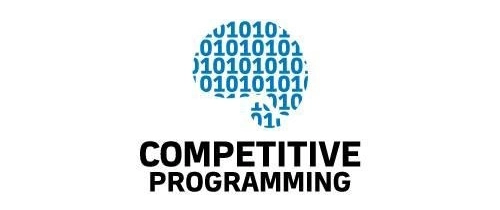C++ for Competitive Programming: A Comprehensive Guide
Meta Description:
C++ for Competitive Programming offers speed, efficiency, and robust libraries, making it a top choice for solving algorithmic problems.
Introduction
C++ is the backbone of competitive programming, offering unmatched speed, flexibility, and tools for solving complex problems. Whether you are a beginner or a seasoned coder, mastering C++ can dramatically improve your performance in coding contests. Its robust features and vast library support make it an indispensable choice for competitive programming enthusiasts.

In this blog, we’ll dive deep into why C++ is a favorite for competitive programming, explore its key features, and provide practical tips to help you excel.
Why C++ is Ideal for Competitive Programming
1. Exceptional Execution Speed
C++ is a compiled language, meaning it converts code directly into machine-level instructions, ensuring blazing-fast execution. This speed is critical when solving problems within strict time constraints.
2. Standard Template Library (STL)
The STL is a powerful library in C++ that includes:
- Containers: Such as
vector,deque,set,map, andpriority_queuefor efficient data management. - Iterators: For traversing through data structures seamlessly.
- Algorithms: Ready-made functions like
sort,lower_bound, andbinary_searchsave time during contests.
3. Fine-Tuned Memory Control
Unlike other high-level languages, C++ allows precise memory management using pointers and dynamic allocation. This control is invaluable when working with large datasets or optimizing space complexity.
4. Versatility Across Platforms
C++ is supported by almost all competitive programming platforms, including Codeforces, HackerEarth, TopCoder, and AtCoder. This universal acceptance ensures a smooth experience regardless of the contest platform.
5. Compatibility with Low-Level Programming
C++ bridges the gap between high-level programming and low-level operations like bitwise manipulations and hardware-level optimizations, making it an ideal choice for algorithmic challenges.

Advanced Features of C++ for Competitive Programming
1. Bit Manipulation
C++ provides operators like &, |, ^, and bitwise shifts (<<, >>), enabling coders to solve problems involving binary calculations or subsets efficiently.
2. Modulo Arithmetic
Competitive problems often involve modular arithmetic. Using C++’s integer type and simple operations, you can handle large numbers and avoid overflow issues.
3. Graph Algorithms
C++ is excellent for implementing graph algorithms, such as:
- Breadth-First Search (BFS)
- Depth-First Search (DFS)
- Dijkstra’s Shortest Path Algorithm
- Kruskal’s and Prim’s for Minimum Spanning Tree
4. Multi-threading and Parallel Processing
While rare in contests, C++ supports multi-threading, giving you the flexibility to experiment with parallel computations in specific scenarios.

Best Practices for C++ in Competitive Programming
1. Efficient Input/Output
Optimize input/output operations using:
ios::sync_with_stdio(false);
cin.tie(0);
cout.tie(0);
This approach ensures faster processing, especially when handling large input data.
2. Use Custom Comparators
Custom comparators in sort() or priority_queue allow tailored ordering, crucial for problems that require unique sorting criteria.
3. Master Recursion and Backtracking
C++ handles recursive calls effectively, making it easier to implement solutions for problems involving backtracking, such as n-queens, permutations, or subset sums.
4. Predefined Constants
Define useful constants to simplify code readability:
const int MOD = 1e9 + 7;
const int INF = 1e9;
Comparing C++ with Other Languages

C++ vs Python
- Speed: C++ is faster due to its compiled nature, while Python is interpreted and slower.
- Syntax: Python is simpler but lacks advanced memory control.
- Libraries: While Python has rich libraries, C++’s STL is better suited for competitive programming.
C++ vs Java
- Execution Time: C++ outperforms Java in terms of speed.
- Code Length: Java is more verbose compared to the concise nature of C++.
Resources for Mastering C++ in Competitive Programming
1. Popular Books
- “Competitive Programming” by Felix Halim and Steven Halim.
- “Data Structures and Algorithms in C++” by Michael T. Goodrich.
2. Practice Websites
3. Online Courses
- Coursera’s “C++ for Competitive Programming”.
- Udemy’s “Advanced C++ Concepts for Coding Competitions”.
Frequently Asked Questions
1. Is C++ hard to learn for competitive programming?
C++ may seem challenging at first due to its detailed syntax, but with consistent practice, it becomes intuitive.
2. Can beginners use C++ for coding competitions?
Yes! Start with basic syntax and gradually progress to STL and advanced concepts.
3. Which IDE is best for coding in C++?
Popular options include Visual Studio Code, Code::Blocks, and CLion.
Conclusion
C++ remains an unbeatable choice for competitive programming. Its speed, versatility, and extensive library support make it the language of choice for top programmers worldwide. With practice and a deep understanding of its features, you can leverage C++ to solve even the most challenging problems with ease.
Master C++ for competitive programming today and elevate your coding game to the next level!


